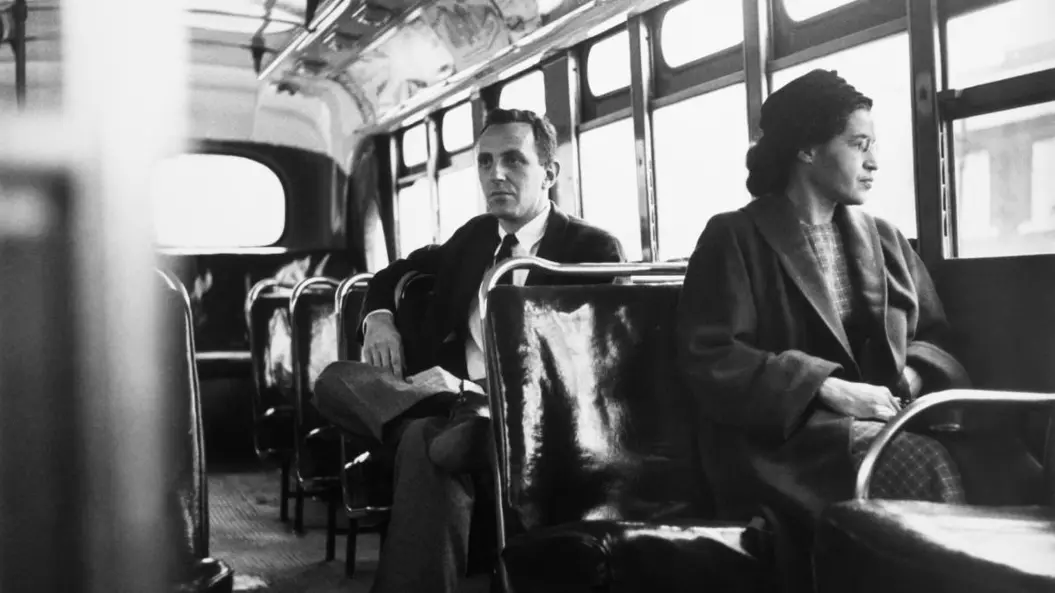
Rosa Parks: A seat reserved for human rights
THE BEGINNING OF THE ANTI-RACIST FIGHT
Rosa Parks, the black woman who did not give up her seat to a white man on the bus. She was arrested but sparked an unprecedented social movement against racism. Rarely has a “no” had such an impact. She was running on December 1, 1955 when in Montgomery (Alabama, United States) a 42-year-old black woman, Rosa Parks, got on the bus and sat calmly. Shortly after, the driver asked her to get up and give her seat to any white person who wanted to occupy it because the law said so and she could not refuse based on said regulation. She however she didn't. She did not give in to an unjust law that trampled on the rights of African Americans. Her refusal ended with her being imprisoned and having to pay a fine of 14 dollars.
"The young white man who was standing had not asked for the seat; it was the driver who decided to create a problem," Rosa Parks herself later declared to the BBC.
FIGHT AGAINST DISCRIMINATORY LAWS
Parks knew that what he was doing was illegal and that failure to comply would have consequences. However, she probably did not know that she would be the spark that would light the flame of the American movement against the discriminatory laws that still existed in many states of the country. In public spaces, blacks and whites had to sit separately, go to separate bathrooms, etc., which represented constant and unfair humiliation.
With her brave act, this seamstress, as well as secretary and assistant in the National Association for the Advancement of Colored People, caught the attention of Martin Luther King, who would not yet be the leader we remember today. Together, for 382 days, they undertook protests that would lead the United States Supreme Court to declare that racial segregation in transportation was against the country's constitution.
Later, in 1996, she would be awarded the Presidential Medal of Freedom and in 1999 the United States Congress would award her the country's highest civilian distinction, the gold medal. Rosa Parks would die at the age of 92 on October 24, 2005, in Detroit, United States, but no one forgets the courage of a woman in the face of injustice and her historical importance in the abolition of racism in the United States.
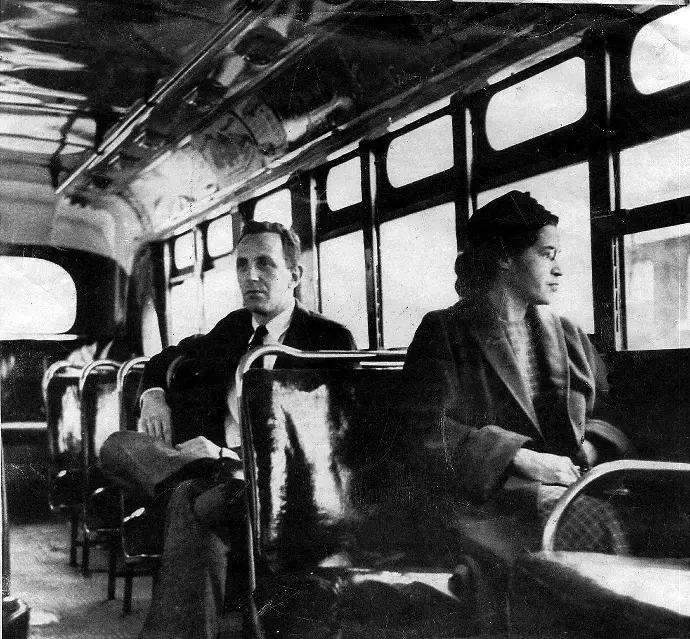
Sitting on the bus
Rosa Parks sitting on one of the public buses where racial segregation laws could force an African American to have to give up her seat to any white man.
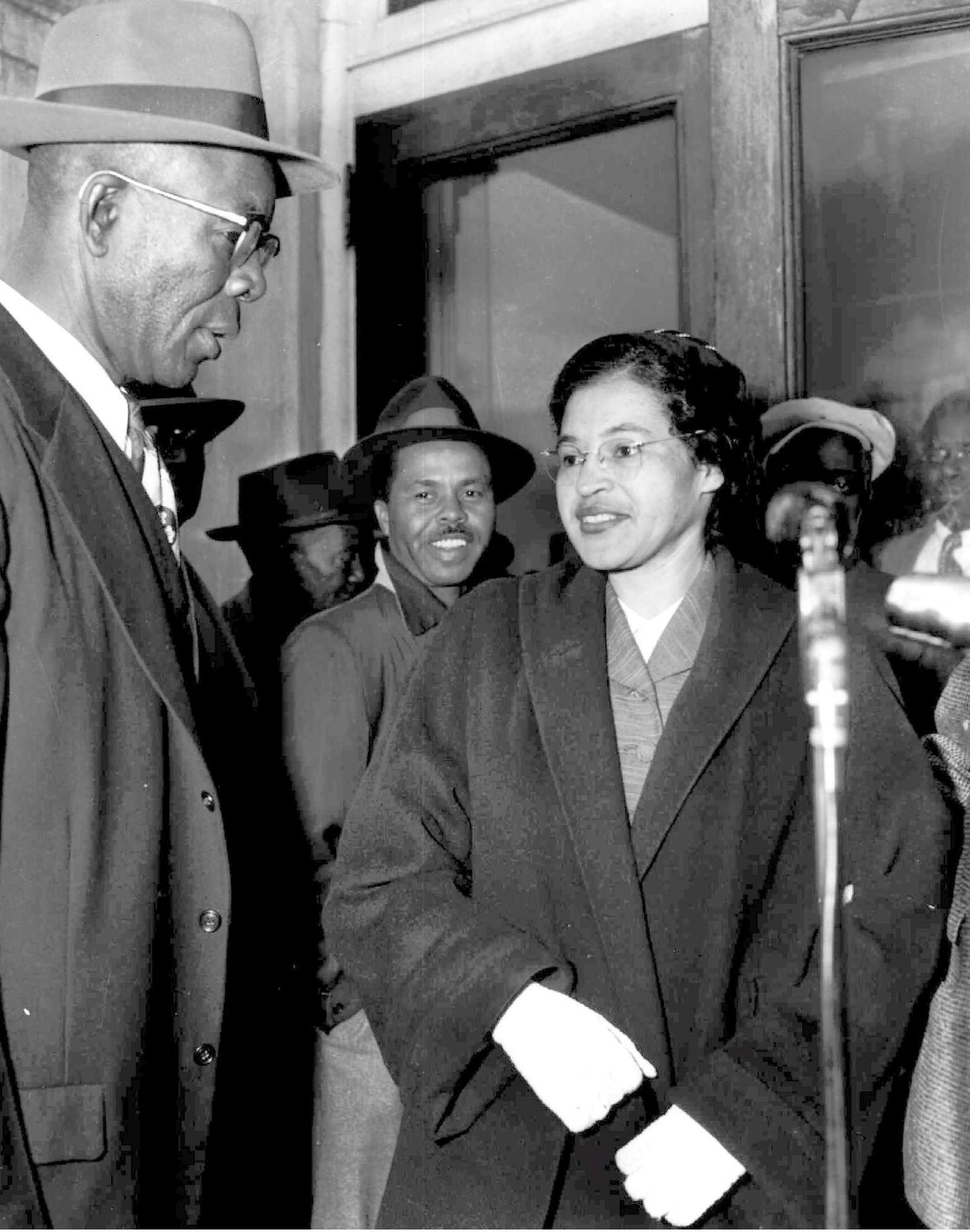
Fight against the law
Rosa Parks at one of the acts of protest against the system of racial segregation on March 19, 1956.
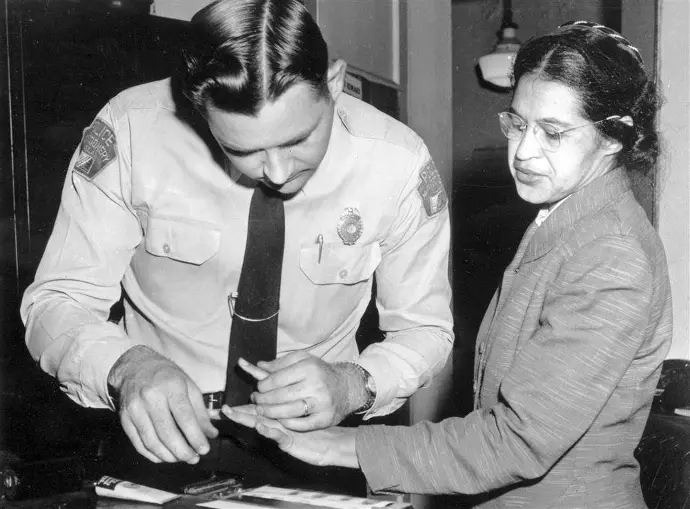
Fingerprint
Rosa Parks two months after her arrest for not giving up her seat to a white man in Montgomery.
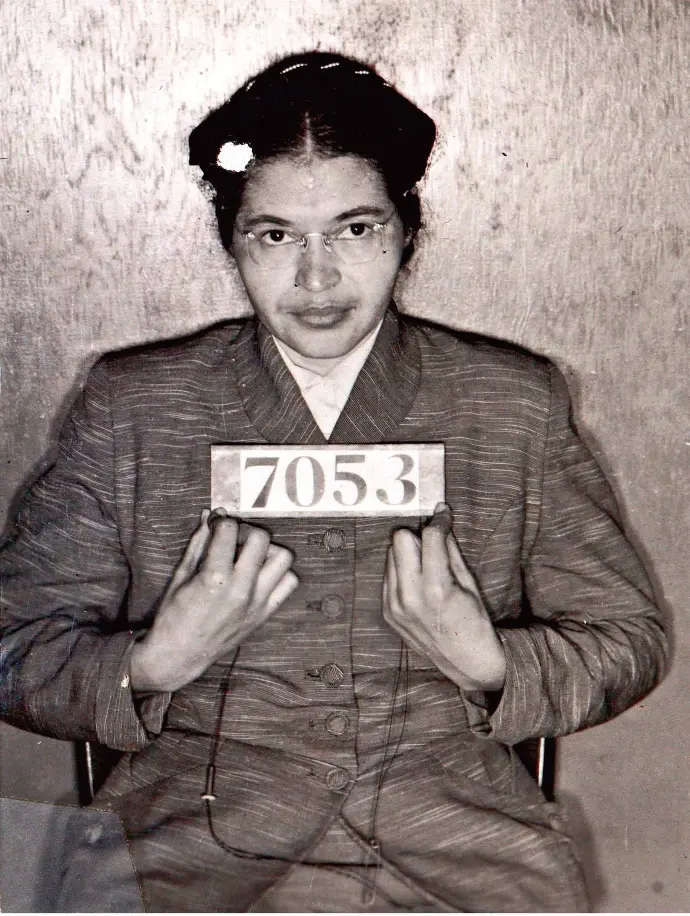
Booked by the police
Mugshot of Rosa Parks on February 22, 1956, just two months after the incident that ended with her in jail and a $14 fine.
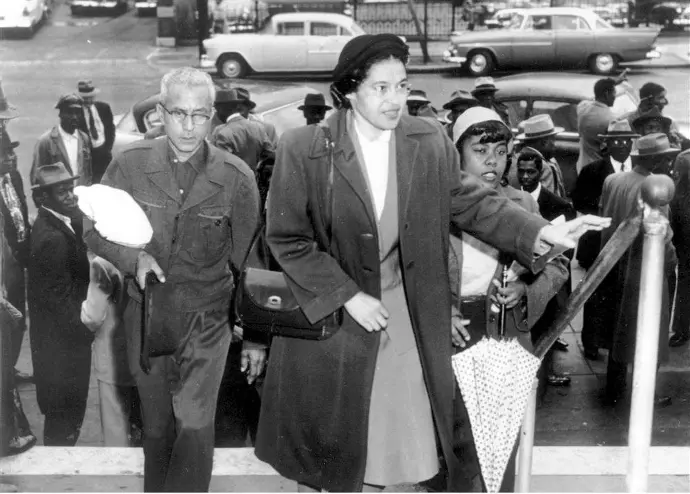
March 19, 1956: Rosa Parks is escorted by E.D. Nixon, former president of the Alabama NAACP, on arrival at the courthouse in Montgomery for the trial in the racial bus boycott. Mrs. Parks was fined $14 on Dec. 5 for failing to give up her seat for a white passenger on a city bus. The bus boycott started on the day she was fined. There were 91 other defendants.
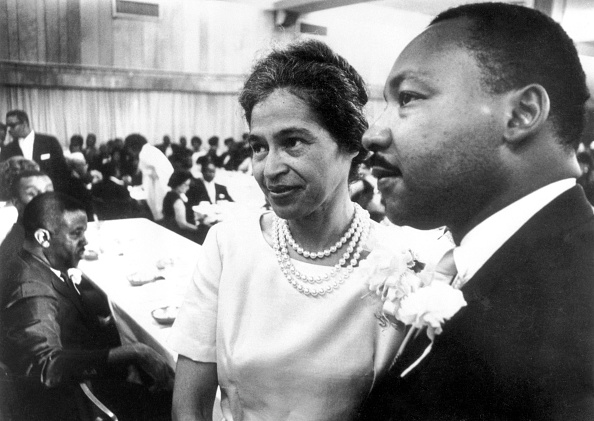
Rosa Parks with Martin Luther King Jr (1956).

 IHRO NEWS
IHRO NEWS